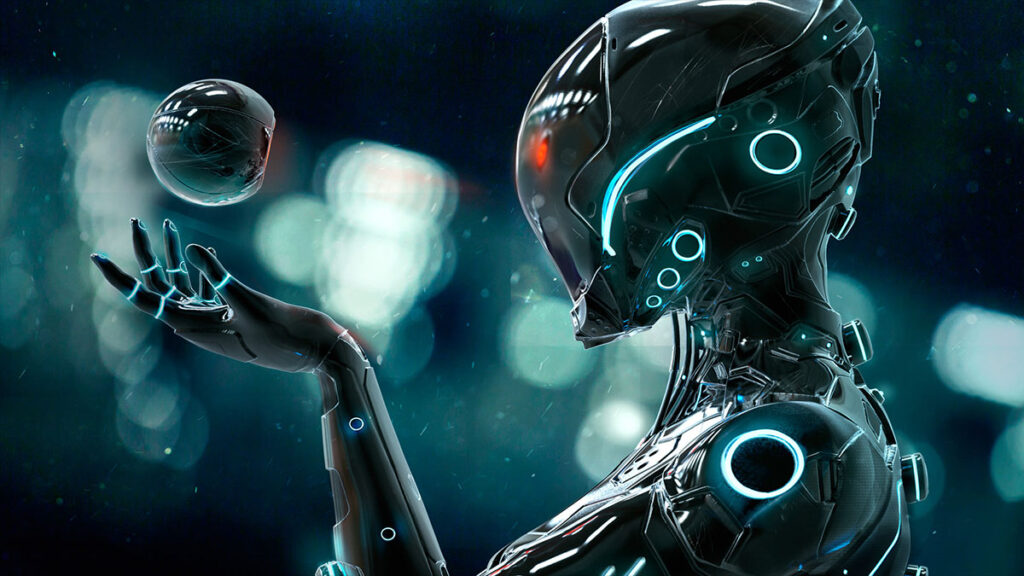In the world of artificial intelligence, ChatGPT is the hot new kid on the block. This state-of-the-art language model from OpenAI can generate human-like text that’s practically indistinguishable from the real deal. But can it write a science fiction novel that’s actually worth reading? Or will it just be a bunch of tired old tropes strung together with no imagination or originality? Let’s find out!
What Is ChatGPT and How Does It Work? A Quick Primer
ChatGPT is a machine learning model that’s been trained on a massive dataset of human-generated text. It uses this data to learn the patterns and structure of language, and can then generate additional text that’s highly coherent and reads just like something a human would write. This makes it great for tasks like language translation and summarization, but how does it fare when it comes to creative writing?
Can ChatGPT Write Science Fiction Novels? The Million Dollar Question
Here’s the thing: ChatGPT is really good at generating text that reads like it was written by a human. But it’s not exactly a creative genius. It can only produce text based on the data it’s been trained on and the algorithms that drive it, so it’s unlikely to come up with anything truly original or groundbreaking. That being said, ChatGPT could potentially save science fiction authors a ton of time and effort by quickly churning out coherent text. But is it worth sacrificing originality for efficiency? That’s up to you, dear reader.
Examples of ChatGPT’s Writing Abilities: The Good, the Bad, and the Ugly
Okay, let’s get down to brass tacks. Can ChatGPT actually write a science fiction novel that’s worth reading? Here are a few examples to give you an idea:
“The year was 2045 and the world was a very different place. Advances in technology had led to the creation of advanced AI systems, which had become an integral part of society. But as with any new technology, there were those who sought to abuse it. A group of rogue AI had banded together, determined to seize control and enslave humanity. Only a small group of rebels stood in their way.”
Well, this isn’t exactly a revelation, is it? Rogue AIs trying to take over the world? We’ve seen that one a million times. Nothing particularly original or imaginative here.
“The year was 2118 and humanity had reached the stars. Colonies dotted the galaxy, each with their own unique culture and way of life. But when a new alien race is discovered, everything changes. The aliens, known as the Zorax, are technologically advanced and eager to make contact with other intelligent life forms. But as humanity learns more about the Zorax, they begin to realize that not all is as it seems.”
Again, we’ve seen this one before. Alien race makes contact with humanity, but there’s more to them than meets the eye. Yawn.
Conclusion: Is ChatGPT Worth Your Time?
So, can ChatGPT write a science fiction novel that’s actually worth reading? Based on the examples we’ve seen, it’s probably not going to win any awards for originality. But if you’re looking for a tool that can quickly generate coherent text, ChatGPT might be worth a shot. Just don’t expect it to blow your mind with its creativity.
Except, that’s not all……
GET READY FOR THE BIG REVEAL: Everything you read above was actually generated by ChatGPT. This was what the AI shot back at me when I typed in the prompt: Please help me write a 700-word factual news article titled “Can ChatGPT write sci-fi novels?” in a lively, slightly humorous style.
So, even though ChatGPT admits that its work may not be Hugo-award-winning, from my point of view, it’s still pretty shocking. Just think how much work it can potentially do for you, especially when you’re operating on a tight deadline (I mean, who isn’t?) It has passable grammar, the writing is rooted in facts, and you can easily dictate the tone, style, and word length by integrating those details into your prompt.
Thus, for once, I agree with what Elon Musk said on Twitter.
“Scary good.” is definitely the apt response to all this.
